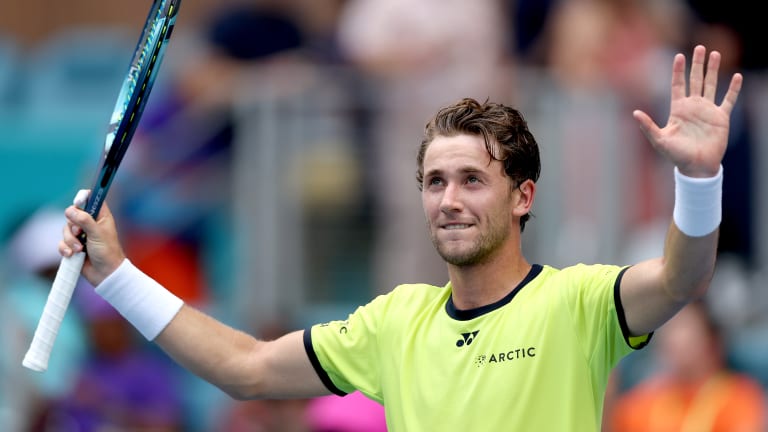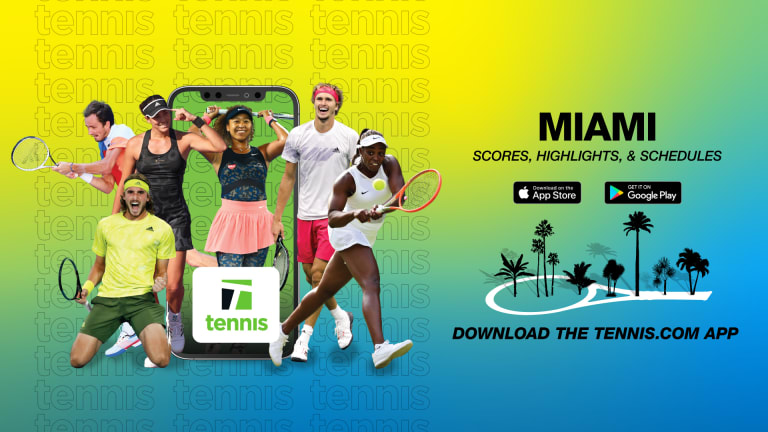Miami, USA
Casper Ruud halts Cerundolo to reach first Masters 1000 final in Miami
By Apr 01, 2022Miami, USA
In beating idol Novak Djokovic, Jakub Mensik came of age in Miami
By Mar 31, 2025Miami, USA
Can Jessica Pegula step out of comfort zone on clay?
By Mar 31, 2025Miami, USA
Jakub Mensik, Miami champion, was going to pull out of the tournament an hour before his first match
Mar 31, 2025Miami, USA
Teenager Jakub Mensik denies Novak Djokovic 100th title in Miami Open upset
By Mar 31, 2025Miami, USA
Aryna Sabalenka takes aim at Iga Swiatek's dominance of the European clay season
By Mar 31, 2025Miami, USA
Novak Djokovic vs. Jakub Mensik: Where to watch, and who will win, their Miami Open final
By Mar 30, 2025Miami, USA
Roger Goodell watches on as Aryna Sabalenka defeats Jessica Pegula in Miami final
By Mar 29, 2025Miami, USA
Aryna Sabalenka masters Jessica Pegula again to win Miami Open
By Mar 29, 2025Miami, USA
19-year-old Jakub Mensik to face Novak Djokovic in Miami Open final
By Mar 29, 2025Miami, USA
Casper Ruud halts Cerundolo to reach first Masters 1000 final in Miami
The Norwegian is turning himself into a multi-surface threat, and adding his name to the growing list of future men’s major contenders.
Published Apr 01, 2022
Advertising
Advertising

Just one of Ruud's previous seven titles came on hard courts (the other six were on clay).
© Getty Images
Advertising

Download the Tennis.com app on your IOS or Android device today!